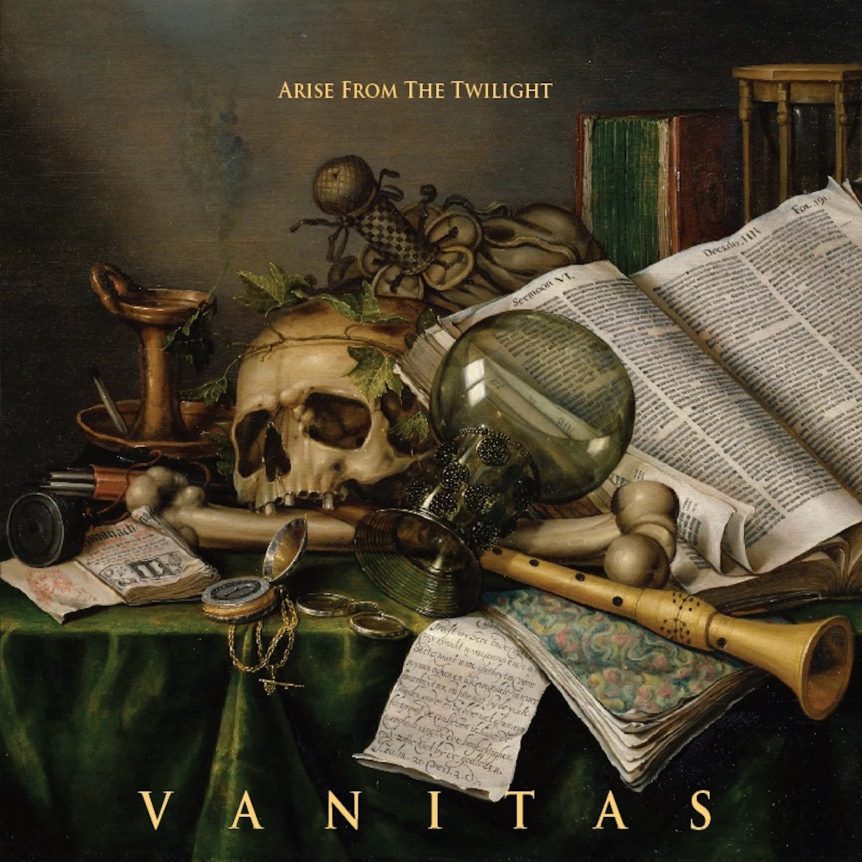The new recording from Michael Begg, VANITAS (OMCD11), will be released on May 6th.
The record will be available from all major digital/streaming outlets. There is also a limited CD run (150 copies).
There is an exclusive pre-release campaign running from the Omnempathy Bandcamp. Order the record there in any format and you will receive an immediate download of one of the tracks; Black Hill. The full album will follow on May 6th.
Pre-Order VANITAS here – https://omnempathy.bandcamp.com/album/vanitas
“one of the most important experimental composers of our time” CCD Radio, Mexico
VANITAS is the first solo release from Michael Begg since 2017s TITAN, winner of the New Music Scotland Award last year.
Michael Begg’s music is located in the place where formal composition and electronic erosion meet; a liminal space coloured by longing and discomfort.
The territory of VANITAS remains crepuscular, but the palette is expansive, informed, in part, by Begg’s development of custom instruments; e-bow autoharp, sampled wood burning stove, piano drone wires, stolen French music box, blow torch glass, and granular goblets.
These richly textured sonic narratives have been influenced by Begg’s early development sessions with his new group, the Black Glass Ensemble, a collective of classical and experimental players, and his time spent at the end of 2018 on a British Council/Cryptic/AngloArts funded residency at the Mexican Centre for Music and Sonic Arts (CMMAS) Morelia, Mexico. (This residency also resulted in a full length work, Sonambulo, which will also be released in 2019)
“Michael Begg is one of our most significant contemporary experimental composers. A true visionary, Begg has quietly developed his own unique and affecting compositional style and sound.”
The Active Listener
Michael Begg:
Midnight. Orchestras are tuning up in the verges of the hollow ways. I have built my own instruments from wood, antique metals and computers. I read a book about the harmonic consonance between planets – but the planets are all out of kilter. I see through holes in the past that manifest as chasms in the sky.
I am so sad. I am so angry. This is my only voice. These are my only tools. I sit still. Very still. I jump in time, but I always land in the night. The beautiful night. God, I cannot tell you how much I miss the night.
Yes, i meditate. It seems very obvious to me that these pieces come from that space, that place – but it doesn’t warrant any closer examination than that. Just, please, allow the seconds to decouple themselves from the minutes. Watch the hours drift up to that hole in the night sky.
This recording is a monument to a certain kind of laudable failure. It is what happens when someone with no gift for programming writes scripts in Python and Max in order to consume data and make the moon and the tide sing. It’s what happens when someone with cheap tools and the ghost of a sound to realise gets out of his studio and into the workshop to make doomed instruments from all the junk in the village. It’s what happens when a man with no formal musical education takes it upon himself to score and orchestrate an ensemble. It’s where ‘I can’t do this’ meets ‘I must do this’.
This is not creating something of worth from silence, this is more like recovering something once lost from the midst of a solid block of shapeless sound.
The work is done. The coding is spaghetti. The instruments are broken; warped and ragged. Still, the moon sings in my ear. The machines in the studio haven’t been updated in over three hours so are obsolete. Yet Clea’s cello, formed in the year of Mozart’s birth, spins a silver thread in space and time.
And so, another midnight. Wife and children sleeping. Another illustrated ruin in my hands. And under what skies? Out into the night. Close the coop, and put away the hens water. Look up. There is one word you need to find. And if you whisper the right word, it will carry beyond the dimmest star.
Now, back to bed, little pilgrim.
